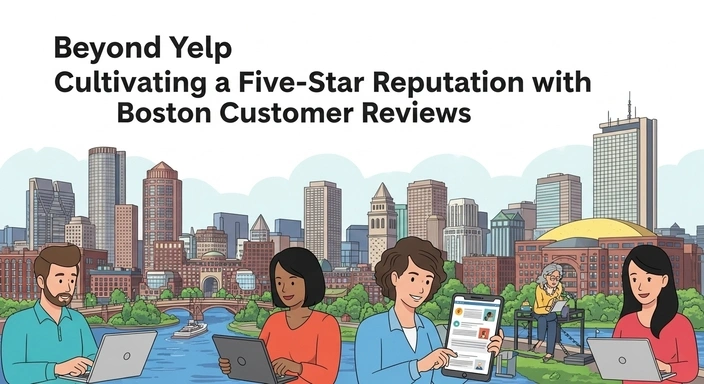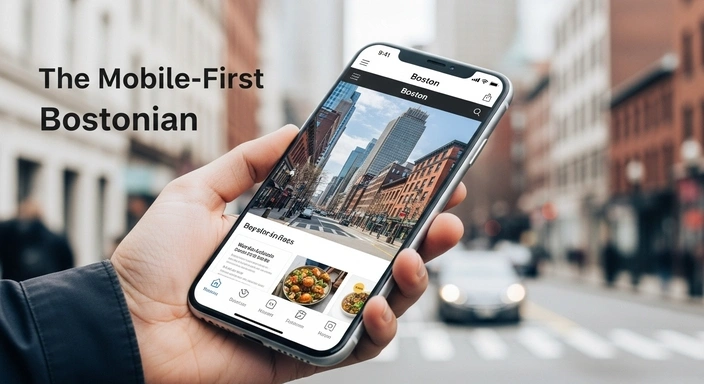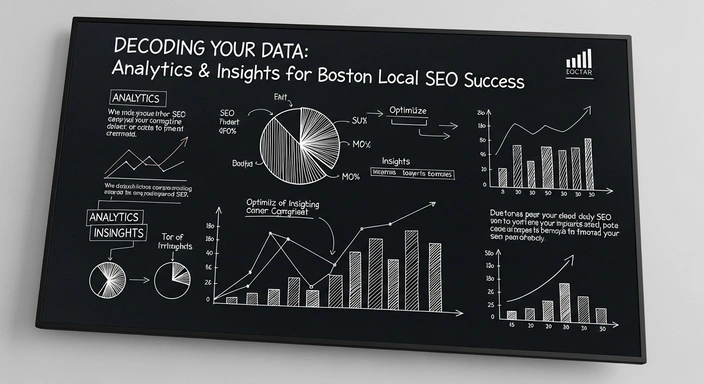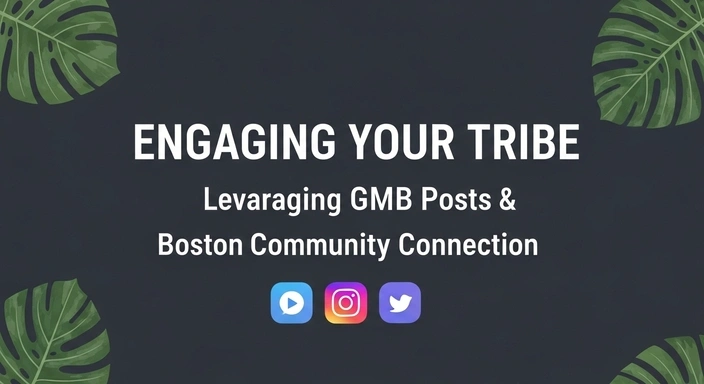This article is the fifth in our 12-part series: Beyond the Boom: How Boston Businesses Can Dominate Local Search & Drive Foot Traffic in a Shifting Economy. If you missed the previous essential guides, catch up on The New Reality: Why Local Search is Non-Negotiable for Boston Businesses in 2025, Your Digital Storefront: Optimizing Your Google Business Profile for Boston Domination and The Power of Proximity: Geo-Targeting Strategies for Boston Neighborhoods (and Beyond). Discover the full series here.
In our journey to empower Boston businesses for digital dominance in 2025, we’ve meticulously explored the economic shifts demanding a robust local search strategy, unveiled the transformative power of a perfectly optimized Google Business Profile, dissected the nuances of hyper-local search intent, and mastered the art of geo-targeting across Boston’s vibrant neighborhoods. Yet, even with impeccable visibility and precise targeting, there’s one critical factor that stands between a potential customer finding your business and actually choosing it: **Trust.** And in the digital age, trust is overwhelmingly built, validated, and broadcasted through online customer reviews.
Imagine a discerning Bostonian searching for “best seafood restaurant Seaport” or “reliable electrician Jamaica Plain.” They find several top-ranking options. What’s their next move? They gravitate towards the star ratings, skim the glowing testimonials, and quickly identify the businesses with a strong, positive chorus of customer voices. This isn’t anecdotal; it’s fundamental human psychology amplified by digital convenience. In 2025, online reviews are your most powerful form of social proof, a direct reflection of your business’s real-world performance, and an indispensable component of your local SEO prominence.
The numbers don’t lie. According to BrightLocal’s 2025 Local Consumer Review Survey, a staggering **98% of consumers read online reviews at least occasionally before deciding on a local business.** Furthermore, 88% of consumers trust online reviews as much as personal recommendations from friends or family. For a Boston business in a fiercely competitive market, ignoring your online reputation is akin to shuttering your doors to a significant portion of your potential clientele.
Google itself places immense weight on reviews. The Whitespark 2023 Local Search Ranking Factors study consistently lists “Review Signals” (quantity, velocity, diversity, etc.) as a top 3 local pack ranking factor. Google’s sophisticated AI algorithms, powered by models like Gemini, are not just counting stars; they are analyzing the sentiment, keywords, and overall trustworthiness reflected in your reviews. This directly influences your E-E-A-T (Experience, Expertise, Authoritativeness, Trustworthiness) signals, which are paramount for Google to confidently recommend your business to high-intent searchers.
This comprehensive guide will go “beyond Yelp” to provide Boston businesses with an exhaustive, actionable roadmap for cultivating a five-star online reputation. We’ll delve into the science of review generation, the art of professional review management, and the crucial strategies for leveraging positive feedback across all platforms to drive trust, conversions, and sustained local dominance in Boston’s discerning market.
—
The Paramount Importance of Online Reviews in 2025: Your Digital Currency of Trust
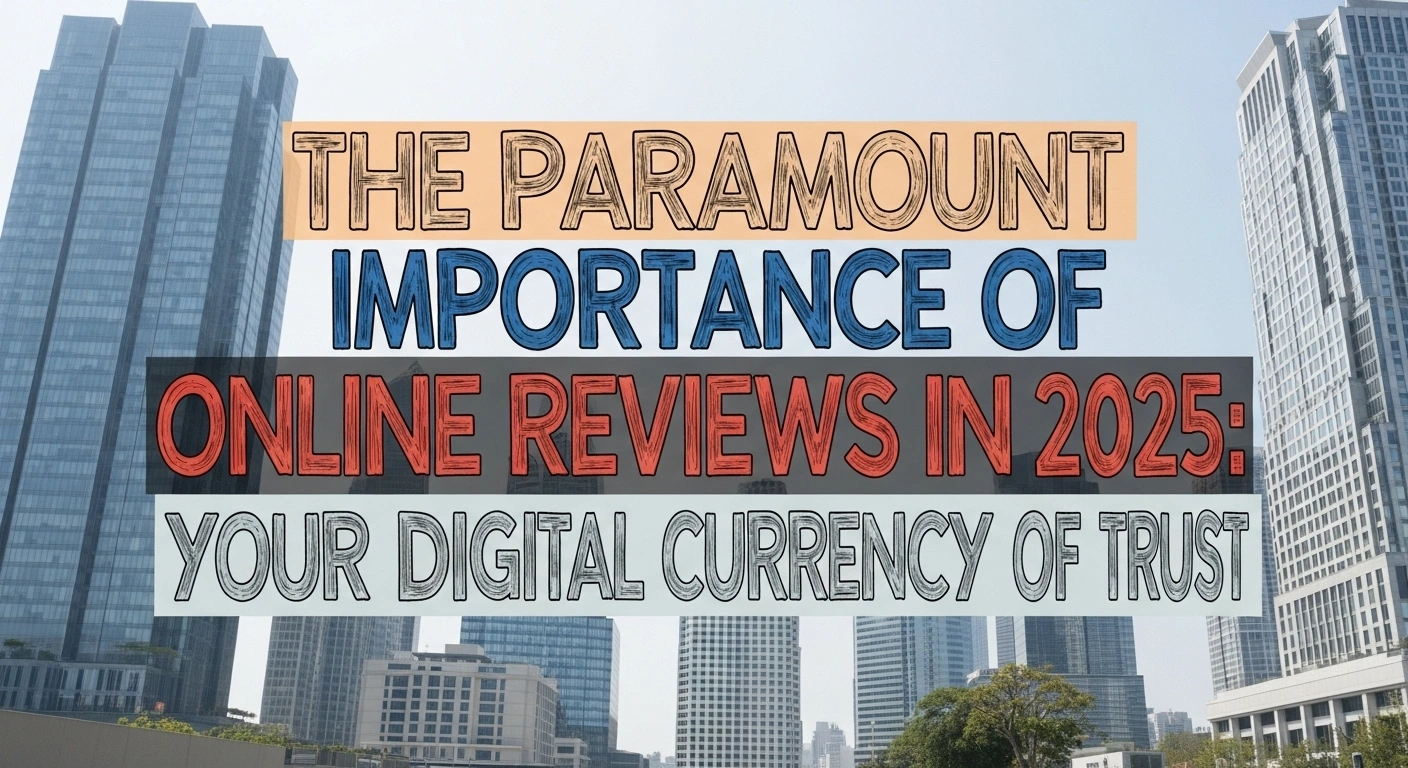
To truly appreciate the strategic imperative of online reviews, we must understand their multifaceted impact across the entire customer journey and their direct influence on your local SEO performance.
1. Reviews as the Ultimate Social Proof: The Power of the Crowd
In a world saturated with marketing messages, consumers are inherently skeptical of brand claims. They seek authentic, unbiased validation from their peers. Online reviews provide this powerful social proof. When hundreds of real customers vouch for your business, it carries far more weight than any advertisement. This is particularly true in Boston, where a discerning, often highly educated, population values authentic experiences and verified quality.
- 98% of consumers read online reviews before making local business decisions. This is nearly universal.
- 88% of consumers trust online reviews as much as personal recommendations. This statistic is profound; it means your online review profile carries the same weight as a direct referral from a trusted friend or family member.
- 71% of consumers say they are more likely to use a business with good reviews. The correlation between positive reviews and customer acquisition is undeniable.
For a business in a competitive Boston neighborhood like the North End (for restaurants) or the Financial District (for professional services), a strong review profile is a fundamental competitive differentiator.
2. Direct Impact on Local SEO Rankings: Google’s Algorithm Loves Reviews
Reviews are not just for customers; they are critical ranking signals for Google’s local search algorithms. Google aims to provide the most relevant, prominent, and *trusted* results. Reviews provide a direct measure of trust and user satisfaction.
- Review Quantity: A higher volume of reviews signals popularity and activity. Google wants to recommend active, thriving businesses.
- Review Quality (Star Rating): Higher average star ratings directly correlate with improved local rankings. Google is unlikely to prominently feature a business with a 2-star average, even if it’s otherwise optimized. Businesses with 4+ star ratings see up to 30% higher conversion rates.
- Review Recency: Fresh, recent reviews are more valuable than old ones. Google prioritizes up-to-date feedback, signaling that your business is consistently providing good service. A constant flow of new reviews is ideal.
- Review Velocity: The rate at which new reviews are generated. A steady, consistent stream of reviews is a strong positive signal. Spikes followed by long periods of inactivity can raise flags.
- Review Diversity: Reviews across multiple platforms (Google, Yelp, Facebook, industry-specific sites) signal broader online prominence and trust.
- Keywords in Reviews: Google’s AI analyzes the natural language within review text. If customers frequently mention specific services, products, or locations (e.g., “best lobster roll Seaport,” “attentive staff Beacon Hill”), this reinforces your relevance for those keywords and geographic areas.
- Response to Reviews: Your responses to reviews (both positive and negative) demonstrate engagement and customer service. Google views this responsiveness favorably.
In 2025, review signals are consistently ranked among the top 3 most influential factors for local pack rankings (Whitespark), underscoring their non-negotiable role in local SEO. Your review profile is a real-time report card that Google reads.
3. Enhancing E-E-A-T (Experience, Expertise, Authoritativeness, Trustworthiness)
Reviews are a direct manifestation of your business’s E-E-A-T. Google’s updated guidelines emphasize showing real-world experience and trustworthiness. Reviews provide exactly that:
- Experience: Positive reviews detailing specific positive interactions (e.g., “The plumber from [Your Business Name] fixed our boiler in our historic South End home quickly and professionally!”) directly showcase your real-world experience.
- Trustworthiness: A high volume of authentic, positive reviews, coupled with professional responses, builds immense trustworthiness. Google’s AI can detect patterns of fake or manipulative reviews, so authenticity is paramount.
- Expertise & Authoritativeness: When reviews repeatedly praise your staff’s knowledge or your business’s ability to solve complex problems, it indirectly signals expertise and authority (e.g., “The team at [Your Law Firm] navigated our complex Boston real estate transaction with incredible expertise.”).
For YMYL (Your Money Your Life) businesses (e.g., financial advisors, medical practices, legal services) prevalent in Boston, demonstrating E-E-A-T through stellar reviews is absolutely critical for ranking and user confidence.
4. Direct Impact on Conversion Rates: From Search to Sale
The correlation between star ratings, review volume, and direct customer action is incredibly strong. Reviews directly influence whether a searcher becomes a customer.
- Businesses with 4+ star ratings see up to 30% higher conversion rates. The difference between a 3.5-star rating and a 4.5-star rating can mean hundreds of thousands of dollars in lost or gained revenue for a growing Boston business.
- 80% of consumers would choose a local business with a 4.0-star rating over a 3.0-star rating, even if the latter is closer. This highlights how review quality can overcome the “distance” factor we discussed in Post 4.
- Reviews directly impact website clicks, phone calls, and direction requests from your Google Business Profile. More positive reviews mean more engagement, which in turn boosts your prominence.
—
Beyond Google: Key Review Platforms for Boston Businesses in 2025
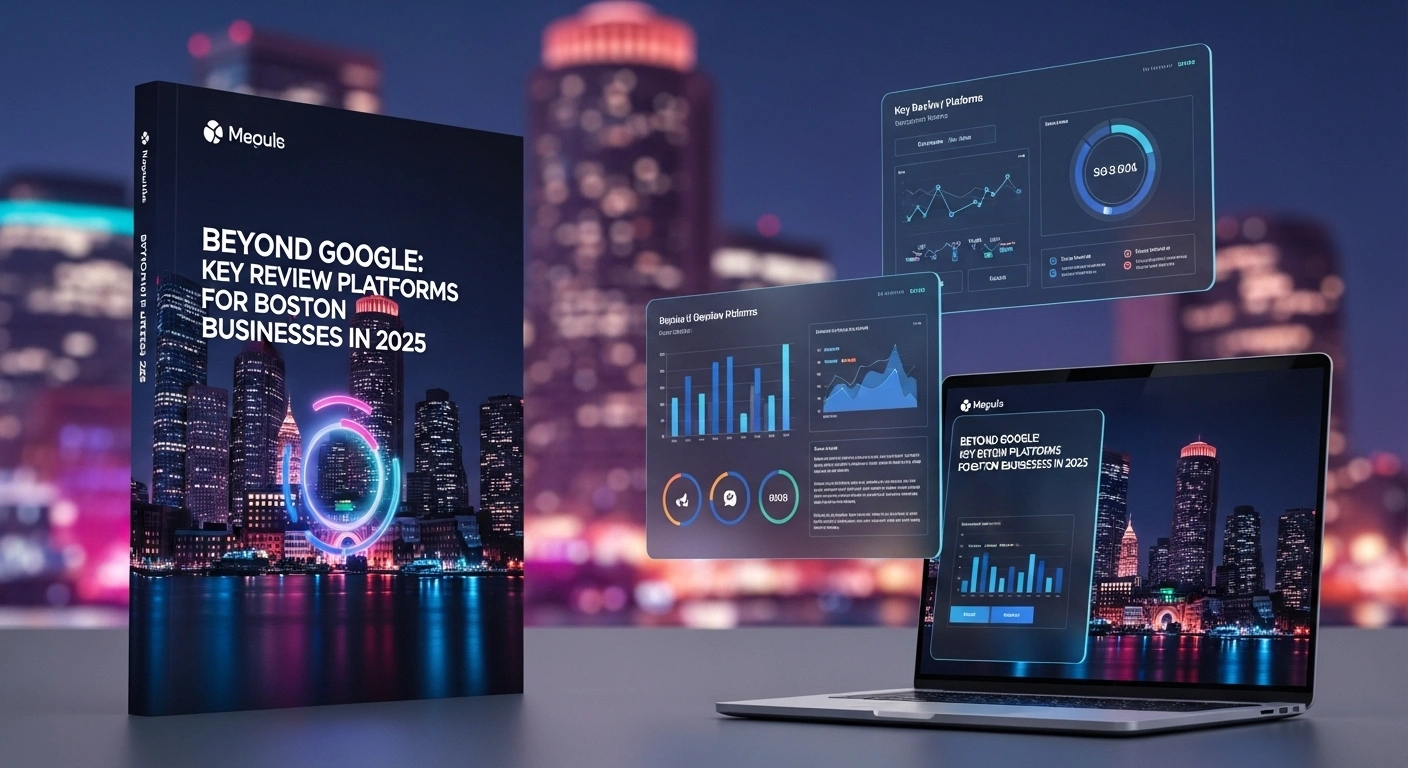
While Google Business Profile is paramount, a comprehensive reputation management strategy necessitates a multi-platform approach. Different customer segments utilize different platforms, and a diverse review profile reinforces trustworthiness.
1. Google Business Profile (GBP) Reviews: The Undisputed King
GBP reviews are the most important for local SEO rankings and visibility. They appear prominently in Google Search results (local pack), Google Maps, and your GBP itself. This is where the vast majority of local searchers will first encounter your business’s reputation.
- Why it’s King: Direct influence on local pack rankings, central to E-E-A-T, integrated directly into Google’s core search experience.
- Google’s Focus: Continued improvements in AI-driven fake review detection, new options for reporting reviews, and recent additions like emoji reactions to reviews on Google Maps (January 2025) and video reviews (testing phase) underscore Google’s commitment to authentic user engagement.
- Prioritization: Your primary focus for review generation and management should always be GBP.
2. Yelp: The Influential Gatekeeper (with a Twist)
Yelp holds significant sway in many industries, particularly restaurants, retail, and home services. However, Yelp has a unique and often misunderstood policy regarding review solicitation:
- Yelp’s “Don’t Ask” Policy: Yelp strongly discourages businesses from explicitly asking for reviews. They believe reviews should be unsolicited and organic. Violating this can lead to Yelp’s notorious filtering of reviews, often hiding legitimate positive reviews.
- How to Approach Yelp:
- Provide Exceptional Service: This is the only “strategy” Yelp endorses. Focus on delivering such a fantastic experience that customers *voluntarily* leave reviews.
- Subtle Cues: A small “Find us on Yelp” sticker or link *without* a direct call to action to review might be permissible, but be cautious.
- Respond Professionally: Always respond to Yelp reviews, especially negative ones, to demonstrate excellent customer service.
- Importance: Despite its quirks, a strong Yelp profile can still influence customer decisions, especially for discerning consumers in Boston’s competitive dining scene.
3. Facebook Reviews/Recommendations: Social Proof & Community Engagement
Facebook’s “Recommendations” (formerly Reviews) are crucial for businesses with an active social media presence and strong community ties. Many Bostonians rely on Facebook groups (e.g., neighborhood groups, interest-based groups) for local recommendations.
- Authenticity: Facebook recommendations are often highly trusted because they come from real people in your social network.
- Engagement: Encourage customers to leave recommendations by engaging with them directly on your business page.
- Visibility: Recommendations appear prominently on your Facebook business page and can be easily shared.
4. Industry-Specific Review Platforms: Niche Authority
Many industries have their own dedicated review platforms that are highly influential within their respective niches. For Boston businesses, these can be critical:
- Healthcare: Healthgrades, Zocdoc, Vitals, WebMD (for doctors, dentists, clinics).
- Legal: Avvo, Lawyers.com, FindLaw (for law firms).
- Real Estate: Zillow, Realtor.com (for agents and brokers).
- Travel/Hospitality: TripAdvisor, Booking.com (for hotels, tours, attractions in a city like Boston).
- Home Services: Angi (formerly Angie’s List), HomeAdvisor (for plumbers, electricians, contractors).
- Restaurants: OpenTable, Resy (for dining experiences beyond Yelp).
Prioritize the platforms most relevant to your specific industry and target audience. A strong profile on these niche sites reinforces your expertise and trustworthiness within your specific Boston market segment.
5. Other General Review Sites & Directories
Consider platforms like Better Business Bureau (BBB), Glassdoor (for employer reviews), and local Boston-specific directories that might include review functionalities. While less impactful on core SEO than GBP, they contribute to your overall online footprint and reputation.
—
Strategic Review Generation: Ethically Cultivating a Five-Star Chorus

Generating a consistent stream of positive reviews requires a proactive, ethical, and customer-centric strategy. You cannot buy reviews (a major policy violation), but you absolutely should ask for them.
1. The Golden Rule: Deliver Exceptional Experiences Consistently
This is the absolute foundation. No amount of clever asking will compensate for a poor product or service. Focus relentlessly on delivering a five-star experience every single time. Happy customers are the most authentic source of positive reviews.
- Train Your Team: Empower every employee to contribute to the customer experience. A friendly receptionist in a Back Bay clinic, an efficient barista in a North End cafe, or a knowledgeable sales associate on Newbury Street can make all the difference.
- Exceed Expectations: Go the extra mile. A surprise discount, a personalized thank-you, or solving a problem beyond the immediate scope of service can turn a satisfied customer into an enthusiastic reviewer.
2. When & How to Ask: Timing is Everything
The timing and method of your review request significantly impact your success rate and adherence to platform policies (especially Yelp’s).
- Timing: Ask immediately after a positive experience.
- After Service Completion: Once a customer expresses satisfaction (e.g., after a successful haircut, a delicious meal, a completed plumbing repair, a closed real estate deal).
- During Checkout: A quick, polite request at the point of sale.
- Following a Positive Interaction: If a customer gives verbal praise, that’s your cue.
- How to Ask (Ethically):
- Directly, Politely, & Personally: “We loved serving you today! If you had a positive experience, we’d be so grateful if you’d share your feedback on Google.”
- Do NOT Incentivize: Never offer discounts, freebies, or other compensation for reviews. This is a major Google policy violation and can lead to penalties.
- Do NOT “Gate” Reviews: Do not pre-filter customers to only ask happy ones for reviews. Ask all customers for feedback, but direct them to an internal feedback mechanism first if you’re concerned about negative public reviews.
3. Making it Easy: Frictionless Review Generation
The easier you make it for customers to leave a review, the more likely they are to do so.
- Direct Review Links: Generate a direct link to your Google Business Profile review form. This is your most powerful tool. You can find this in your GBP dashboard.
- QR Codes: Convert your direct review link into a QR code. Place it on receipts, table tents, in-store signage, business cards, or vehicle wraps (for SABs). A quick scan and they’re ready to review.
- Email/SMS Campaigns: Send polite follow-up emails or SMS messages after a service or purchase. Include the direct review link. Keep these brief, personalized, and value-driven (e.g., “We hope you enjoyed your visit! Your feedback helps us serve the Boston community better.”).
- In-Store Signage: Strategically place signs near your checkout, exit, or waiting areas encouraging reviews. (e.g., “Loved Your Visit? Scan Here to Share Your Experience on Google!”).
- Website Integration: Have a prominent “Reviews” or “Testimonials” section on your website with clear calls to action and links to your preferred review platforms.
- Leverage Review Management Software: Platforms like Birdeye, Podium, Broadly, or Get More Reviews automate the request process (via email/SMS), manage multiple platforms, and often provide centralized dashboards for responses. Many integrate directly with your CRM or POS system.
4. Training Your Team: Your Frontline Review Generators
Your employees are your most powerful asset in generating reviews. They have direct customer contact.
- Educate Them: Explain *why* reviews are important for the business’s success and their own job security.
- Provide Scripts/Phrases: Give them polite, non-pushy ways to ask (e.g., “If you enjoyed your experience, we’d be so grateful if you’d consider leaving us a quick review online. It really helps local businesses like ours.”).
- Make it Easy for Them: Provide QR codes or printed cards with review instructions.
- Incentivize (Ethically): Reward employees for review generation, not for *positive* reviews. For example, “Every time a customer mentions you by name in a review, you get a bonus!” This encourages excellent service.
—
Mastering Review Management: Responding, Reporting & Reinforcing Trust
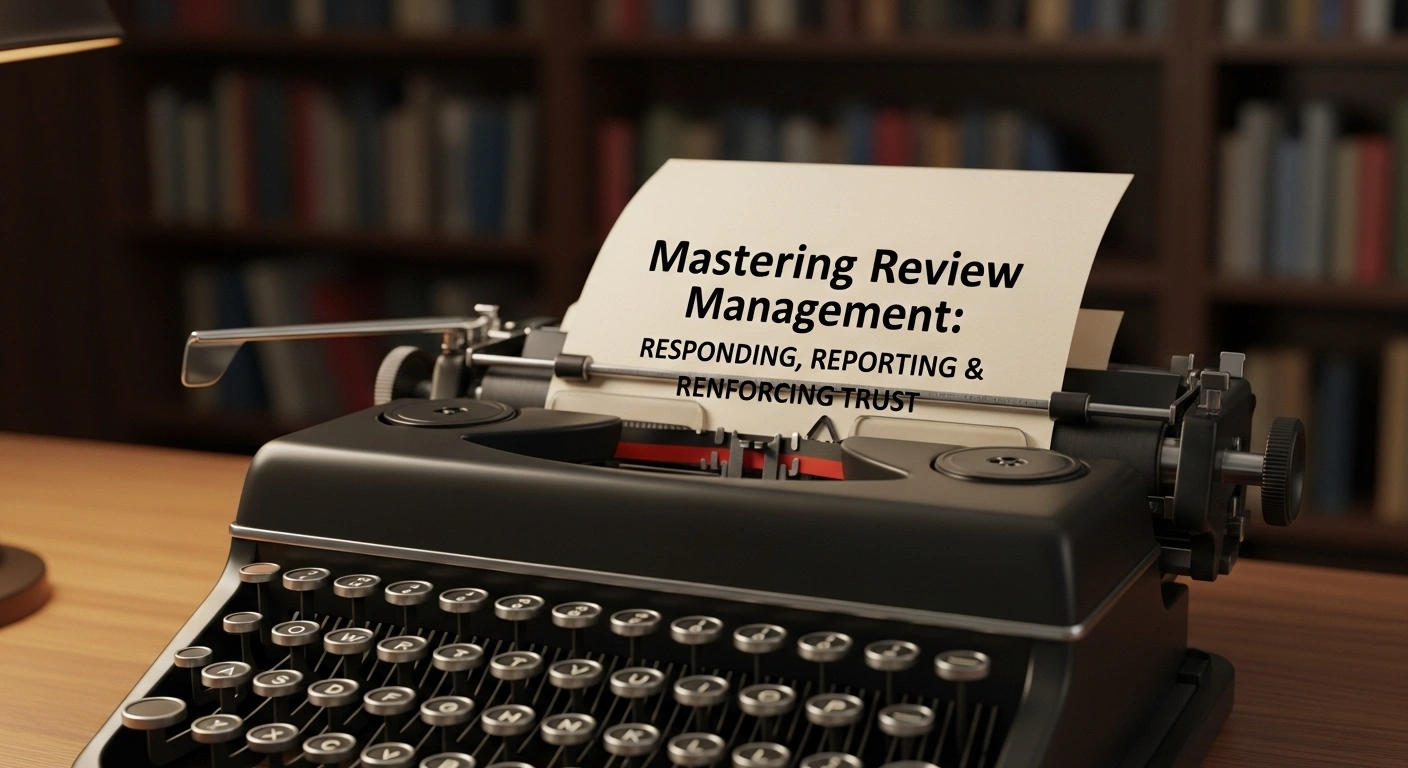
Generating reviews is only half the battle. How you manage and respond to them is equally, if not more, critical for building and protecting your five-star reputation, especially in a city like Boston where transparency and authenticity are highly valued.
1. Respond to ALL Reviews: The Rule of Engagement
This is non-negotiable. Responding to every review — positive, negative, or even neutral — demonstrates that you are engaged, you value customer feedback, and you are attentive to your online presence. This signals professionalism to both potential customers and Google’s algorithms, enhancing your E-E-A-T.
- Timeliness is Key: Aim to respond within 24-48 hours. Promptness shows you care.
- Personalization: Avoid generic, canned responses. Address the reviewer by name, mention specific details from their review, and sign off with a personal touch. This shows genuine engagement.
- Use Keywords (Naturally): Subtly integrate relevant keywords and your business name into your responses. (e.g., “Thank you, [Customer Name], for your kind words about our Italian restaurant in the North End! We’re thrilled you enjoyed our homemade pasta.”).
2. Responding to Positive Reviews: Amplify the Praise
Positive reviews are a gift. Use your responses to amplify their impact and reinforce positive brand perception.
- Express Gratitude: Always start with a genuine “Thank you!”
- Reinforce Positive Aspects: Echo their praise (e.g., “We’re so glad you enjoyed our quick service and the quality of our Boston plumbing repair!”).
- Encourage Repeat Business/Referrals: “We look forward to seeing you again soon!” or “Don’t forget to tell your friends about us!”
- Add a Personal Touch: “It was a pleasure helping you find the perfect book for your Beacon Hill brownstone.”
3. Mastering Negative Review Mitigation: Turning Challenges into Triumphs
Negative reviews are inevitable. How you handle them defines your business’s character. They are an opportunity to demonstrate exceptional customer service and transparency, potentially turning a critic into an advocate and impressing future customers.
- Stay Calm & Professional: Never respond emotionally or defensively. Your response is for future customers as much as for the current one.
- Acknowledge & Empathize: “I’m so sorry to hear you had this experience,” or “I understand your frustration.” Show you’ve listened.
- Apologize (If Appropriate): Even if you don’t agree with the complaint, apologize for their negative experience.
- Offer to Take it Offline: “We’d like to make this right. Please contact us directly at [phone number] or [email] so we can discuss this further.” This moves the conversation out of public view and shows a willingness to resolve the issue.
- Keep it Concise: Don’t get into a lengthy debate. State your apology and offer a resolution path.
- Learn from Feedback: Use negative reviews as constructive criticism to identify areas for improvement in your Boston business’s operations.
A well-handled negative review can actually build more trust than a string of unchallenged positive ones, as it demonstrates integrity and customer commitment. 88% of consumers will use a business that responds to reviews, showing that engagement is key, regardless of review sentiment.
4. Reporting Fake or Spam Reviews: Protecting Your Integrity
Unfortunately, fake or malicious reviews exist. Google is continually improving its AI-driven detection systems, but you can also actively report them.
- Signs of Fake Reviews:
- Generic, non-specific language.
- Extreme language (overly positive or negative) with no detail.
- Reviewer has left many similar reviews for unrelated businesses.
- Reviewer’s profile name looks suspicious or is a string of numbers.
- Review is clearly about another business.
- Review uses offensive language or personal attacks.
- How to Report:
- From GBP Interface: Log into your Google Business Profile. Find the review, click the three dots next to it, and select “Report review.”
- Google Business Profile Support: For persistent or complex issues, contact Google Business Profile support directly.
- Legal Considerations: For truly damaging, defamatory, or libelous reviews, consult legal counsel. Some jurisdictions offer recourse against false online statements.
Protecting your online reputation from malicious attacks is a critical component of reputation management. Google’s webinars in 2025 specifically highlight strategies for fighting fake reviews, underscoring their commitment to review authenticity.
—
Leveraging Reviews for Maximum Local Impact: Beyond Google My Business
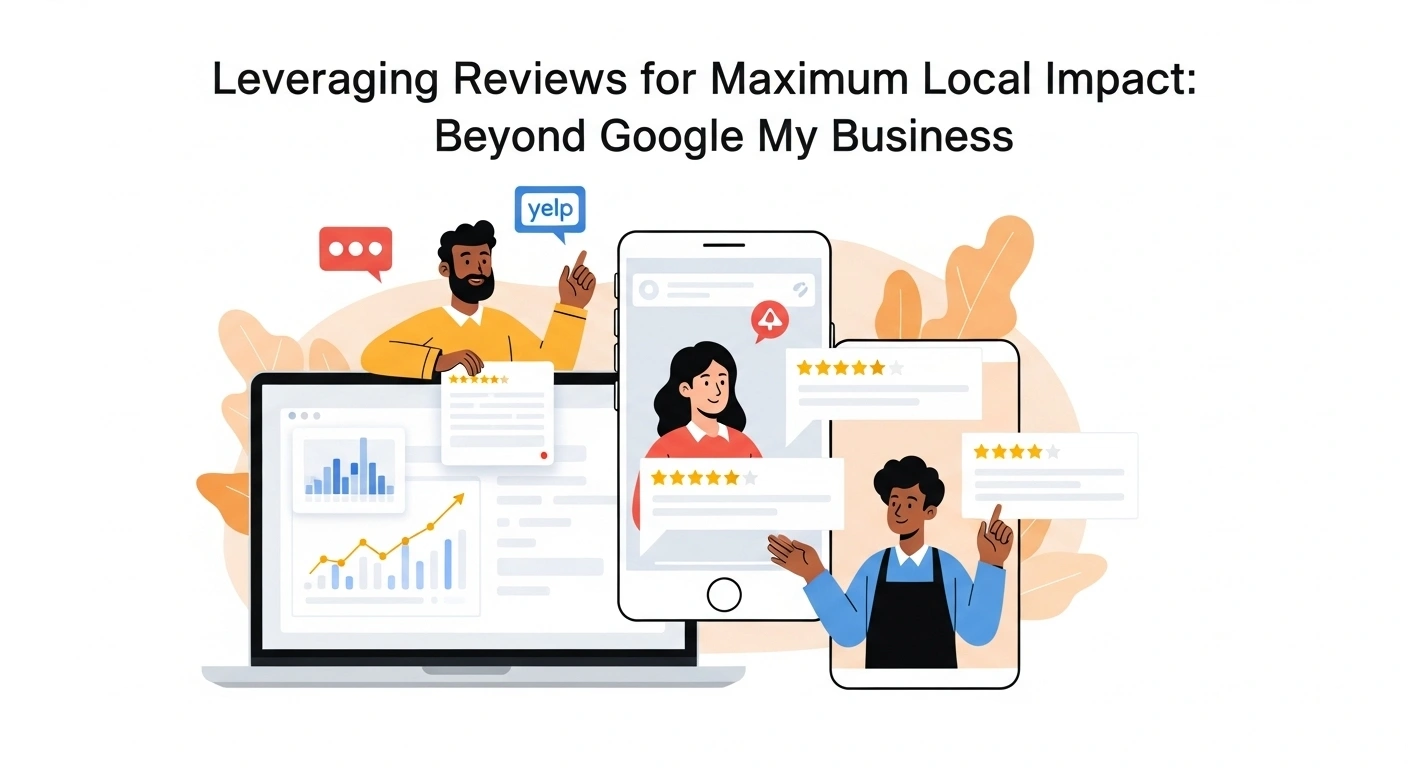
A strong review profile extends beyond Google. Integrating and leveraging reviews across your entire digital ecosystem amplifies their power and builds comprehensive trust.
1. Website Integration: Showcase Your Praise
Your website is your controlled environment to display your best reviews and build confidence for visitors.
- Dedicated Testimonials Page: Create a prominent page showcasing your best reviews from various platforms. Include photos of customers (with permission) if possible.
- Review Carousels/Widgets: Use plugins or widgets to display dynamic, scrolling reviews on your homepage, service pages, or product pages. Many review management software solutions offer this functionality.
- Schema Markup: Implement AggregateRating Schema and Review Schema on your website. This tells Google that your page contains review information and can lead to rich snippets (star ratings) appearing in your organic search results, significantly boosting click-through rates.
- Local-Specific Reviews: If you have location-specific pages (as discussed in Post 4), embed testimonials from customers in those specific Boston neighborhoods.
2. Social Media Promotion: Share the Love
Don’t just keep good reviews on your GBP. Share them across your social media channels.
- Create Graphics: Design eye-catching graphics featuring a positive quote from a review.
- Tag Reviewers (with permission): If the reviewer has a public profile and you have their permission, tag them.
- Run Contests: Occasionally run contests encouraging users to share their positive experiences with your Boston business on social media (without incentivizing positive reviews directly).
This leverages the virality of social media to amplify your positive reputation.
3. Incorporating Reviews into Marketing Materials
Extend your online reviews offline:
- Print Materials: Feature positive review quotes on brochures, flyers, business cards, and in-store signage.
- Email Signatures: Add a link to your Google reviews in your email signature.
- Presentations: Include a slide with your stellar star rating and a few key testimonials in sales or investor presentations.
4. Review Management Software: Streamlining Your Efforts
For most Boston businesses, especially those with high customer volume, managing reviews manually across multiple platforms can be overwhelming. Review management software platforms offer invaluable tools:
- Centralized Dashboard: Monitor all reviews from various platforms (Google, Yelp, Facebook, industry sites) in one place.
- Automated Review Requests: Send customizable email/SMS requests to customers, often integrated with your CRM or POS.
- Filtering (Ethical): Some platforms allow you to direct dissatisfied customers to a private feedback form before they post a public review (this is permissible, unlike review gating).
- Response Templates: Provide templates for quick, personalized responses.
- Reporting & Analytics: Track overall star rating, review volume, sentiment analysis, and competitor performance.
- Website Widgets: Seamlessly integrate review carousels onto your website.
Investing in a robust review management system (e.g., Birdeye, Podium, Broadly, Get More Reviews, Reputation.com) can save significant time and ensure your strategy is consistently executed.
—
Boston’s Unique Review Landscape: Adapting Your Strategy for Discerning Consumers

Boston’s consumer base is distinct. Highly educated, community-oriented, and often skeptical of overt marketing, Bostonians rely heavily on authenticity and word-of-mouth. This makes a genuine, robust review strategy even more critical.
1. The Value of Niche Reviews in Boston
Beyond the major platforms, consider niche-specific review sites that carry particular weight within Boston’s diverse industries:
- For restaurants, sites like Boston Eater or local food blogs can be incredibly influential.
- For healthcare, the local reputation on Healthgrades or Zocdoc for clinics in the Longwood Medical Area or specialized practices in the Back Bay is paramount.
- For professional services (legal, financial), platforms like Avvo or the Massachusetts Bar Association’s online directories might be crucial.
Understanding and prioritizing these Boston-specific platforms ensures you’re reaching the right discerning audience segments.
2. Leveraging Community & Neighborhood Loyalty
Boston is a city of neighborhoods, each with its own distinct identity and strong community ties. Positive reviews from residents within a specific neighborhood carry immense weight and build loyalty.
- Encourage reviewers to mention their neighborhood (e.g., “Best coffee shop in Jamaica Plain!”).
- Share positive reviews within neighborhood-specific Facebook groups (if permitted and done tastefully).
- Host local events and leverage the goodwill to generate reviews from community members.
3. Responding to Local Nuances in Reviews
Bostonians often appreciate specific details and local context in review responses. If a reviewer mentions a local landmark or a common Boston challenge, incorporate it into your response to show you understand their experience.
- Example: If a review praises your quick delivery during a snowstorm, you might respond, “We’re so glad our pizza could warm you up during that Boston blizzard! Thanks for choosing us.”
4. Combating the “Boston Tough” Mentality
Bostonians can be direct in their feedback. Don’t be discouraged by a few tough, but constructive, reviews. Embrace them as opportunities to show your resilience, transparency, and commitment to improvement. A well-handled critical review often resonates more authentically than dozens of generic positive ones.
—
Conclusion: Your Five-Star Reputation — The Ultimate Local Competitive Advantage

In the evolving digital landscape of 2025, a five-star online reputation is no longer a luxury; it is the ultimate competitive advantage for Boston businesses. It’s the linchpin that translates online visibility into tangible trust, drives conversions, and fosters enduring customer loyalty. Beyond Yelp and beyond mere quantity, it’s about cultivating an authentic chorus of positive customer voices that Google’s algorithms respect and that discerning Bostonians implicitly trust.
By committing to an ethical, proactive review generation strategy, meticulously managing every piece of feedback with professionalism and personalization, and leveraging the power of reviews across your entire digital ecosystem, your Boston business can build an unshakeable foundation of trustworthiness. This not only significantly boosts your local SEO rankings by demonstrating unparalleled E-E-A-T, but it also empowers your business to convert high-intent searchers into loyal customers, securing your dominance in Boston’s dynamic market.
This comprehensive guide has armed you with the blueprint for cultivating a five-star reputation. Next, we’ll delve into the powerful, often misunderstood, world of local link building. Because while your customers’ trust is paramount, Google’s trust (built through authoritative links) is what truly fuels your prominence.
Is your Boston business struggling to build a stellar online reputation, or feeling overwhelmed by review management? The experts at **seobostonma.com** specialize in comprehensive review generation and reputation management strategies that deliver measurable results for Boston businesses like yours. Schedule a free consultation with our team today and let’s transform your customer feedback into your most powerful growth engine.


